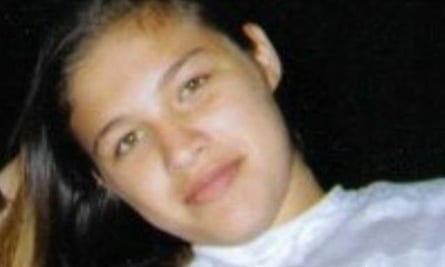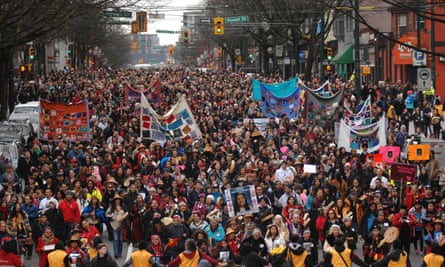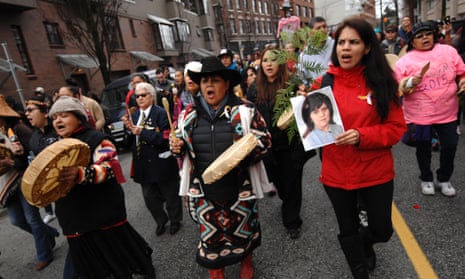Canada’s long-awaited national inquiry into the disappearance or murder of nearly 1,200 indigenous women will look radically different from previous attempts to grapple with shocking levels of violence against aboriginal women, according to the country’s new federal indigenous affairs minister.
In an interview with the Guardian, Carolyn Bennett said that victims’ families will play a key role in the inquiry, which could also include elements of aboriginal ceremony and culture.
Bennett said whoever is picked to head the inquiry will also need to “be able to be creative and innovative in the way this commission takes place”.
“I heard from enough families that if it’s a very court-like procedure, a very judicial atmosphere, it may not work for them,” she said. “Some say specifically they don’t want it to look like inquiries of the past.”
A total of 1,181 indigenous women and girls have been murdered or have disappeared in suspicious circumstances over the past 30 years. In June, the Royal Canadian Mounted Police (RCMP) concluded that First Nations women are four times more likely to go missing or be murdered than other Canadian women are.

But previous efforts to investigate violence against indigenous women – including several RCMP studies, a 1996 Royal Commission and a 2012 commission in British Columbia – have been ignored by federal governments and faced criticism for failing to include the victims’ families.
Bernadette Smith, whose sister Claudette Osborne-Tyo has been missing since 2008, said: “Families were excluded, lawyers got rich, pockets got lined, lots of recommendations were made, [but] how many of them were actually implemented? Not very many. There are still women dying out there.”
Victims’ families – as well as Indigenous activists, the United Nations and human rights groups – have long called for a national inquiry, but were rebuffed by the Conservative government of former prime minister Stephen Harper.
Harper’s Liberal successor, Justin Trudeau, who won a landslide victory last month, has made the national inquiry a priority, setting aside a budget of CDN$40m over two years.

The Liberal government has also promised to boost funding for education, housing, and infrastructure in the First Nations and to implement all 94 recommendations in a report by the country’s Truth and Reconciliation Commission, which concluded that Canada had pursued a policy of “cultural genocide” against its aboriginal population.
The pledges have been met with an equal measure of optimism and skepticism.
“It is a huge, huge responsibility for us to actually be able to get on with the reconciliation that is required,” said Bennett.
The gap in the standard of living between indigenous and non-indigenous Canadians remains large. Poverty, incarceration, and suicide rates are higher among aboriginal people, while life expectancy is lower. Indigenous education and housing are in crisis; in more than 90 of the country’s 634 First Nations, tap water is unsafe to drink without boiling.
The gravity of the situation means that the inquiry must also be accompanied by immediate action, said Dawn Lavell-Harvard, president of the Native Women’s Association of Canada.
“If there’s a fire in the house, you don’t sit there saying we’re going to wait until the fire commissioner comes,” she said.
Bernadette Smith cautioned that many recommendations from previous inquiries still need to be fully implemented, including improvements to housing and education, rehabilitation programs for aboriginal men who commit violence and better policing.
But while Smith is skeptical about the latest inquiry, she said she still hopes it will highlight the root causes behind the violence against indigenous women.
“I think it will shed light on the fact our people are looked at as less than [non-indigenous] Canadians,” she said.

Smith and other activists said that for the inquiry to succeed, victims’ families must be given the necessary support to participate fully – including funding for those traveling from remote reserves.
Activists also say that it is crucial that the inquiry actively sets out to portray the missing and murdered women as human beings – not simply names on a list.
The government is expected to launch a pre-consultation on the inquiry in the coming weeks and hopes to launch the full inquiry by the summer of 2016.
Bennett said that getting the inquiry right “means everything”.
“We can’t let the families down again.”

Comments (…)
Sign in or create your Guardian account to join the discussion